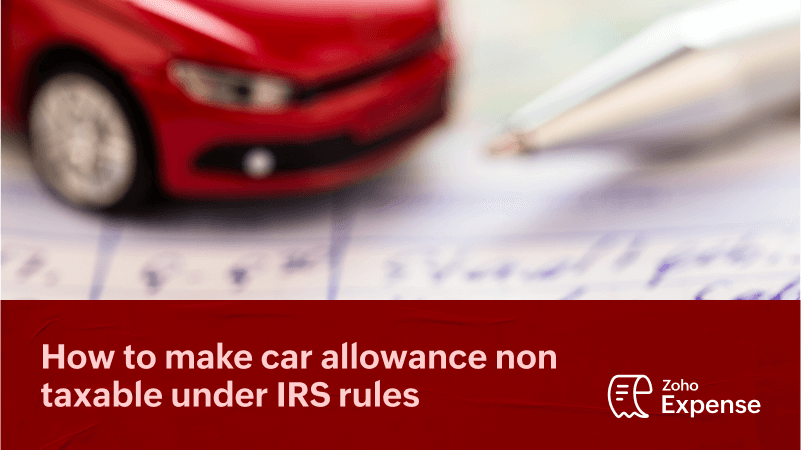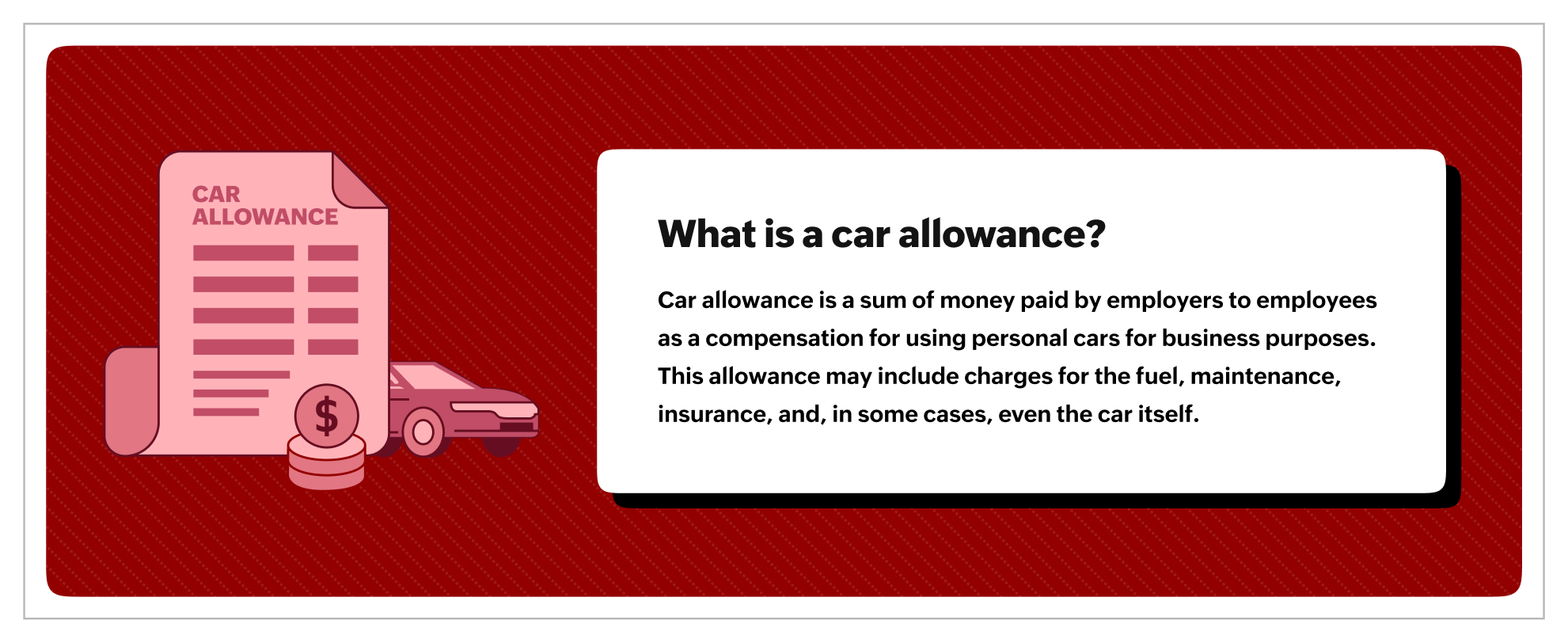- HOME
- Expense Management
- How to make car allowance non-taxable under IRS rules
How to make car allowance non-taxable under IRS rules
Companies that provide employee reimbursements for expenses incurred by employees on behalf of the company often provide a car allowance. A car allowance for mileage use and vehicle maintenance is an income that employees do not want to pay tax on. Since these form a part of business expenses, the IRS has laid down rules to regulate these allowances. Employers and employees can apprise themselves of these deductible rates, use cases, and limits to minimize their tax burden come tax season.

What is a car allowance?
A car allowance is a sum of money paid by employers to employees as compensation for using personal cars for business purposes. This allowance may include charges for the fuel, maintenance, insurance, and, in some cases, even the car itself.

When do companies provide a car allowance to their employees?
When employees use their cars regularly for work, a predefined car allowance helps companies compensate employees in a fair and transparent manner. The allowance helps employees ensure refueling and car upkeep without affecting their work.
What are the IRS rules for car allowance?
Whether the car allowance is taxable or not depends on whether it is an accountable or non-accountable plan. But what is an IRS accountable and non-accountable plan?
What is an accountable plan?
An accountable plan is a reimbursement arrangement that meets IRS requirements. To be considered non-taxable under such a plan, your company must ensure the following:
Business connection - The expenses reimbursed must be for legitimate business use of a personal vehicle. The car allowance must strictly cover the costs incurred in the course of work-related travel, not personal use.
Substantiation - Employees must substantiate their expenses. This typically means maintaining a mileage log or record that tracks all the details of a trip, including trip date, start and end locations, business purpose, and miles driven. GPS tracking logs these details when using automatic tracking applications. This can further help maintain these data points for accurate substantiated records. These records should be provided to the employer within a reasonable time. Receipts for fuel and maintenance are also advisable.
Return of excess - If an employee receives more than the substantiated expense (for example, more than the IRS standard mileage rate), the excess must be returned to the employer. Failing to return excess reimbursement makes the excess taxable income.
IRS standard mileage rate for 2025
For 2025, the IRS standard mileage rate is $0.70 per mile. Here's a free calculator to check the IRS's current mileage rate that can be claimed by businesses. To keep allowances tax-free, reimbursement should not exceed this rate. Amounts paid above the standard rate are taxable.
Methods for providing a non-taxable car allowance
Mileage reimbursement: Pay employees based on their actual business mileage, substantiated by a log, at or below the IRS standard rate. If the rate or amount exceeds the IRS rate, the extra portion is taxable.
Fixed and variable rate (FAVR) allowance: This method combines fixed payments (for depreciation, insurance, etc.) with variable payments (for fuel, maintenance). FAVR plans must follow IRS rules on employee eligibility (at least five employees, each driving over 5,000 business miles per year) and strict substantiation.
What happens if your allowance is not accountable?
Any car allowance paid without substantiation, or where excess payments are not returned, is considered a non-accountable plan. In such cases, the entire allowance is treated as a taxable component and is subject to federal and state income tax and payroll taxes.
What can employers do to ensure tax compliance?
- Implement a clear policy outlining record-keeping requirements.
- Use digital mileage tracking tools to simplify substantiation.
- Regularly audit car allowance payments to ensure compliance and adjust for changes in IRS rates.
Conclusion
Structuring your car allowance under an accountable plan is the key to ensuring it remains non-taxable according to IRS rules. By reimbursing only for legitimate business mileage or expenses, carefully substantiating those expenses with accurate logs and receipts, staying at or below the IRS standard mileage rate, and requiring employees to return any excess reimbursement, both employers and employees can enjoy the benefits of tax-free car allowances while staying compliant with IRS guidelines. Taking these steps minimizes tax liability and streamlines the process for everyone involved.
- Dhwani
Dhwani Parekh is a seasoned FinTech content writer with more than 7 years of experience in SaaS marketing. As a contributing expert at Academy by Zoho Expense, she focuses on uncovering trends that empower businesses to streamline their financial operations, especially business travel and expense management. With deep industry knowledge and a pulse on the rapidly evolving landscape of business spend, Dhwani’s content adds tremendous value to Academy by Zoho Expense.
